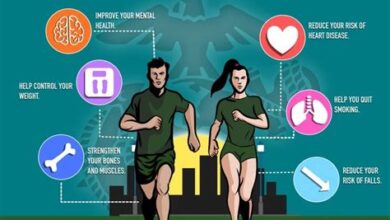The Effects of Sedentary Lifestyle on Physical Health

Discover the sedentary lifestyle’s impact on weight, heart health, and chronic diseases. Learn about musculoskeletal issues and how to combat them.In today’s modern society, the sedentary lifestyle has become increasingly prevalent, with many individuals spending a significant portion of their day sitting at a desk, in front of a computer, or in front of a screen. This lack of physical activity can have a profound impact on our physical health. In this blog post, we will explore the different aspects of the sedentary lifestyle and its effects on our overall well-being. From understanding what constitutes a sedentary lifestyle to the link between sedentary behavior and weight gain, as well as its impact on heart health, musculoskeletal issues, and its contribution to chronic diseases, we will delve into the various ways in which this type of lifestyle can negatively affect our bodies. By shedding light on these effects, we hope to raise awareness and encourage positive changes to improve our physical health and well-being.
Understanding the Sedentary Lifestyle
It’s no secret that modern society has become increasingly sedentary, with many individuals spending the majority of their day sitting at a desk, in front of a computer, or on the couch. This sedentary behavior, characterized by a lack of physical activity and prolonged periods of sitting, has become a pervasive issue in today’s world.
Understanding the sedentary lifestyle involves recognizing the negative impact it can have on physical health. Being sedentary not only leads to weight gain and obesity, but it can also contribute to a host of other health issues, including cardiovascular disease, diabetes, and musculoskeletal problems. The sedentary lifestyle has been linked to a decline in overall physical fitness and an increased risk of chronic health conditions.
For many individuals, the sedentary lifestyle has become the norm, as technological advancements and changes in the nature of work have led to a decrease in physical activity. It’s important for people to be aware of the detrimental effects of a sedentary lifestyle and take proactive steps to incorporate more movement and activity into their daily routines in order to mitigate these negative health outcomes.
Link Between Sedentary Lifestyle and Weight Gain
The Effects of Sedentary Lifestyle on Physical Health
Many people may not realize the impact that a sedentary lifestyle can have on weight gain. When a person engages in minimal physical activity, their body burns fewer calories, leading to an imbalance between calories consumed and calories burned. This imbalance can result in weight gain over time, as the body stores excess calories as fat.
Research has shown that individuals who spend prolonged periods of time sitting or inactive have a higher likelihood of gaining weight compared to those who lead more active lifestyles. This can be attributed to the fact that sedentary behavior not only reduces the number of calories burned, but it also affects metabolism and the body’s ability to regulate blood sugar levels, which can contribute to weight gain.
In addition to the direct impact on weight gain, a sedentary lifestyle can also increase the risk of developing obesity-related conditions such as type 2 diabetes, high blood pressure, and cardiovascular disease. These health issues further underscore the importance of recognizing the link between sedentary behavior and weight gain, and the need to address physical inactivity as a significant factor in maintaining a healthy weight.
Impact of Sedentary Behavior on Heart Health
Living a sedentary lifestyle, characterized by prolonged sitting or minimal physical activity, can have a significant impact on heart health. Individuals who engage in sedentary behavior are at a higher risk of developing heart disease, as sitting for long periods of time can lead to increased blood pressure, elevated cholesterol levels, and a higher risk of blood clots. Furthermore, a lack of physical activity can weaken the heart muscles and decrease its efficiency in pumping blood throughout the body.
Moreover, sedentary behavior is also associated with an increased risk of developing type 2 diabetes, which can further increase the likelihood of heart disease. The combination of a sedentary lifestyle and poor dietary habits can lead to obesity, another major risk factor for heart disease. In addition, prolonged sitting can lead to the accumulation of visceral fat, which surrounds the organs and contributes to inflammation, insulin resistance, and ultimately, heart disease.
To mitigate the negative effects of sedentary behavior on heart health, individuals should aim to incorporate regular physical activity into their daily routine. This can include activities such as walking, cycling, or participating in aerobic exercises. Taking frequent breaks from prolonged sitting and incorporating strength training exercises can also help improve heart health and reduce the risk of developing cardiovascular disease.
Musculoskeletal Issues Caused by Sedentary Lifestyle
The Effects of Sedentary Lifestyle on Physical Health
The Effects of Sedentary Lifestyle on Physical Health
When you lead a sedentary lifestyle, sitting for prolonged periods of time, you can experience a range of musculoskeletal issues. The lack of movement can lead to muscle stiffness and tightness, particularly in the back, neck, and shoulders. This can result in chronic pain and discomfort, impacting your overall quality of life.
Furthermore, sitting for extended periods can weaken the muscles in the lower body, including the glutes, hamstrings, and quadriceps. As a result, individuals who are sedentary may experience reduced strength and stability in their lower body, making them more susceptible to injuries and falls.
Additionally, prolonged sitting can also contribute to poor posture, leading to imbalances in the spine and pelvis. Over time, this can result in structural issues and chronic conditions such as herniated discs, sciatica, and other spinal problems.
How Sedentary Lifestyle Contributes to Chronic Diseases
Many people today lead a sedentary lifestyle, which involves sitting or lying down for long periods of time with little to no physical activity. This type of lifestyle has been linked to various chronic diseases, including obesity, type 2 diabetes, cardiovascular disease, and certain types of cancer. The lack of movement and exercise can have detrimental effects on overall physical health, leading to the development and progression of these and other chronic conditions.
One of the main reasons why a sedentary lifestyle contributes to chronic diseases is its impact on weight gain. When individuals are inactive, they burn fewer calories, leading to an imbalance between energy intake and expenditure. This imbalance can result in weight gain, which increases the risk of developing obesity and related conditions such as diabetes and heart disease. Additionally, prolonged sitting or lying down can lead to poor posture and muscle weakness, further exacerbating the risk of developing musculoskeletal issues and chronic pain.
Moreover, the sedentary behavior has been shown to have a direct negative impact on heart health. Lack of physical activity can lead to an increase in cholesterol levels, high blood pressure, and a higher risk of developing blood clots. These factors significantly contribute to the development of cardiovascular diseases, including heart attacks, strokes, and heart failure. In addition, an inactive lifestyle can lead to a decrease in overall fitness levels, making individuals more vulnerable to the effects of chronic diseases and reducing their ability to manage and overcome these conditions.





